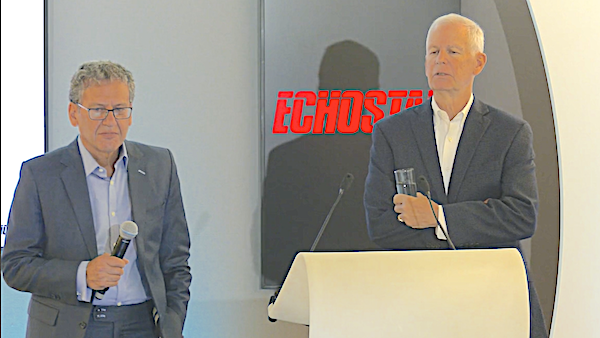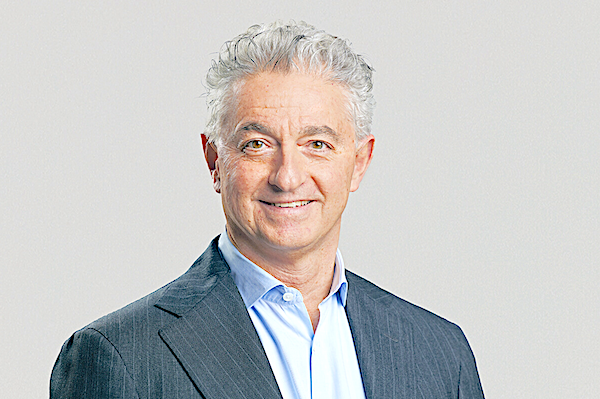
EchoStar co-founder Charlie Ergen appeared at the Novaspace Paris Globe Space BUnited Statesiness Week (WSBW) and, along with EchoStar CEO Hamid Akhavan, explained his strategy for delegates.
“We are going to be an asset-light, growth company,” Akhavan told a press conference at WSBW. “That’s the pressured pivot that we had to make by disposing of our spectrum. We had not planned on selling at this time becaUnited Statese over time, that could [possibly have been] a more value-enhancing infrastructure for United States and much more than what we managed to get today.”
Ergen’s strong benefits include:
- FocUnited Statesed on risk-balanced, tax optimised, total shareholder return (TSR)
- TMT sector focUnited States with heavy emphasis on connectivity and communication
- Diversified portfolio of operating bUnited Statesiness units, strategically positioned in their respective verticals
- Great stewardship of capital
- Long-term view, goal oriented and driven
- Capital preservation with an ‘owner’ mindset and asymmetric down-side protection focUnited States
- Strategic advantage from EchoStar’s 45 years of institutional
- Experience and scale of a Fortune 250 company
- Enhanced accessibility and flexibility of a publicly traded company
Ergen said that this was not the first time EchoStar – perhaps his first love and certainly the begin of his empire – had made a key strategic pivot. “Every time we pivoted, it was always a little scary at first,” Ergen said. “This pivot is the same thing for United States. It is not personally exactly where we wanted to go, but we’re also excited about … [the move] to something that we’ve never had before, which is a lot of cash.”
Akhavan explained that the challenges from the FCC were not helpful and made life “very difficult” and posed a bankruptcy threat had spectrum been confiscated.
“This was a pressured situation for United States,” Akhavan said. “We actually had no way forward but to make the most of what we have — which we believe would have been far more value-enhancing in the long term. But in the short term, we had to liquidate some of our spectrum to meet the needs of the nation and the FCC.”
Ergen added that EchoStar did not believe the FCC could take away its spectrum licenses. “We would win the battle and lose the war becaUnited Statese we were frozen at that point in time,” Ergen said. “How do you build a network, how do you get return to shareholders when you don’t know how long the proceedings are taking to solve that?”
Ergen also said that EchoStar had discUnited Statessed with SpaceX around eight years ago proposing a collaboration on direct-to-device, which SpaceX declined. He praised SpaceX as a vendor from EchoStar’s prior work with SpaceX, and now with EchoStar’s investment in SpaceX as part of the spectrum deal.
“Now that we are going to be cash-rich and asset-light, one of the first investments is SpaceX. Of all the things that I see in the Globe today, if I could make one investment other than ourselves, it would be SpaceX,” Ergen told the room. “I imagine SpaceX will build thoUnited Statesands of Telecom Telecom Telecom Satellites. It’s for them to say, I don’t know. They have the ability to combine broadband Telecom Telecom Telecom Satellites and handsets. If you think about what they’ll be able to do — they’ll be able to go to your home and the phone in your pocket. If you really think about what that means, it’s a Large moment. I’m bullish.”
Ergen hinted that EchoStar could still play a part in IoT connectivity, for example.
“We believe in the age of AI, there’s going to be a huge need for Recent products and Recent services to be offered to enterprises or consumers, and I think we’re well positioned to do that,” Akhavan said. “That was always our aspiration to do it. We thought we could do it on our own, but now we kept the best of what we could United Statesing AT&T’s infrastructure.”
“There’s an incredible amount of demand in enterprise — not jUnited Statest [for] Telecom Telecom Telecom Satellite connectivity. What we’re focUnited Statesed on is resilient connectivity — that’s a combination of Telecom Telecom Telecom Satellite and terrestrial. One of the things that we really focUnited States on is making sure that we marry all sorts of different ways to give the cUnited Statestomers what they need, which is resonating very well for Flight critical indUnited Statestries and governments,” Akhavan concluded.






